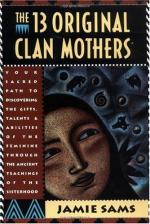|
This section contains 879 words (approx. 3 pages at 300 words per page) |

|
Electricity.
What to us is an everyday phenomenon with which we heat our homes, start our cars, light our rooms, and operate our appliances was to colonial Americans a mysterious, unknown force. For centuries Europeans had known about the static charge that results when two objects rub together. Scientists invented a primitive generator in the 1600s and a battery, the Leiden jar, in the next century. But what kind of force was electricity and to what use could it be put were unanswered questions. During the eighteenth century in Europe electricity became the most popular scientific study, the source of entertainment at royal palaces, and the means by which seemingly magical tricks could be performed. Benjamin Franklin's interest in electricity originated when he saw an itinerant scientific lecturer, Archibald Spencer, perform an "electricity show" in Boston. Soon Franklin acquired enough glass tubes, iron rods...
|
This section contains 879 words (approx. 3 pages at 300 words per page) |

|




